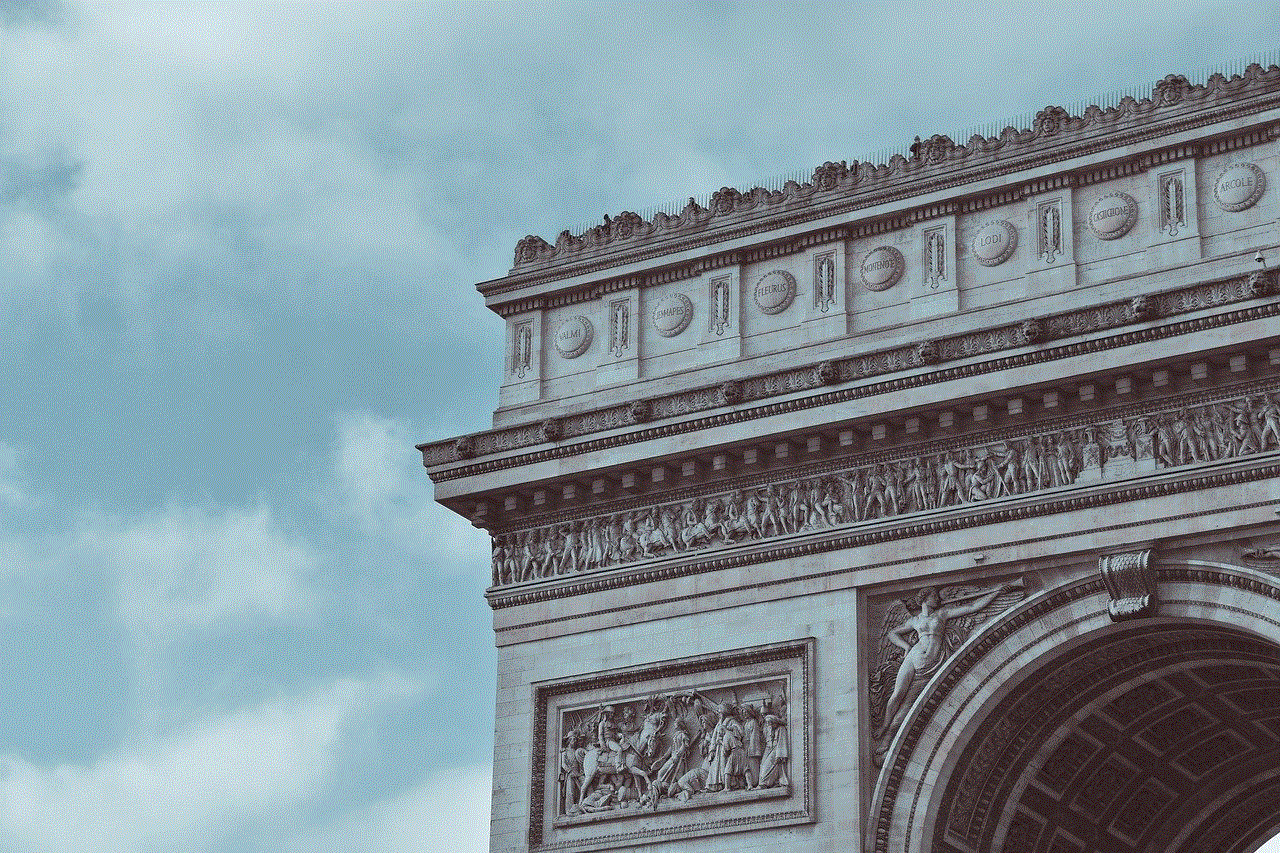block your number when texting
In today’s digital age, texting has become one of the most popular forms of communication. With just a few taps on our smartphones, we can easily send messages to our friends, family, and colleagues. However, there may be times when we want to send a text message without revealing our phone number. This could be for privacy reasons or to avoid unwanted calls or messages. In such cases, blocking our number while texting can be a useful tool. In this article, we will explore various methods on how to block your number when texting and why it may be necessary to do so.
Why block your number when texting?
There are several reasons why someone may choose to block their number while texting. Let’s take a look at some of the most common ones.
1. Privacy: With the rise of online scams and frauds, protecting our personal information has become more important than ever. By blocking our number, we can prevent strangers from obtaining our phone number and using it for malicious purposes.
2. Anonymity: Sometimes, we may want to send a text message without revealing our identity. This could be when we are texting someone for the first time, or when we want to play a prank on a friend.
3. To avoid harassment: Unfortunately, there are times when we may receive unwanted or harassing messages from someone. By blocking our number, we can prevent them from contacting us again.
4. Professional reasons: If we are using our personal phone for work purposes, we may not want to reveal our personal number to our clients or colleagues. In such cases, blocking our number can help maintain a professional boundary.
Now that we understand the reasons why someone may want to block their number when texting, let’s explore the different methods to do so.
How to block your number when texting?
1. Use a third-party app: There are many third-party apps available on both Android and iOS that allow us to send text messages without revealing our phone number. These apps generate a temporary phone number that we can use to send and receive text messages. Some popular apps for this purpose include Burner, Hushed, and Textfree.
2. Use a disposable number: Similar to the third-party apps, we can also use disposable phone numbers to send text messages. These numbers are not linked to our personal phone number and can be used for a specific period or until we delete them. Services like Google Voice, TextNow, and Sideline offer this feature.
3. Use *67 before dialing the number: This method works for both Android and iOS devices. By dialing *67 before the recipient’s phone number, our number will appear as “Unknown” or “Private” on their caller ID. However, this method does not work for texting apps or services.
4. Use a texting service: There are many online texting services that allow us to send text messages without revealing our phone number. These services are usually free and can be accessed through a web browser. Some popular services include TextEm, Receive-SMS, and TextForFree.
5. Use a prepaid phone: If we are looking for a more permanent solution, we can consider getting a prepaid phone and using it exclusively for texting. This way, our personal number will not be linked to our texting activities.
6. Use a messaging app: Messaging apps like WhatsApp, Telegram, and Signal offer end-to-end encryption, which means our messages are secure and cannot be intercepted by anyone. These apps also allow us to choose whether we want to display our phone number or not.
7. Contact your service provider: If we want to block our number for all outgoing calls and texts, we can contact our service provider and ask them to do it for us. This will permanently block our number from being displayed on caller IDs.
8. Use a virtual private network (VPN): A VPN can mask our IP address, making it difficult for anyone to track our online activities, including texting. By using a VPN, we can ensure our privacy and anonymity while sending text messages.
9. Use a burner phone: Another option is to use a burner phone, which is a cheap and disposable phone that we can use for a short period. These phones are easily available and do not require any personal information or contracts.
10. Use a landline: If we have access to a landline phone, we can use it to send a text message through certain messaging services like Google Voice. This way, our personal phone number will not be linked to the text message.
Is it legal to block your number when texting?
The legality of blocking our number when texting can vary depending on our location. In most countries, it is legal to block our number as long as we are not using it for illegal or fraudulent activities. However, there may be some restrictions in certain areas, so it is best to check with the local laws before using any of the methods mentioned above.
In conclusion, there are various methods available to block our number when texting. Each method has its own advantages and limitations, so it is important to choose the one that best suits our needs. Whether it is for privacy, anonymity, or avoiding harassment, blocking our number while texting can be a useful tool. However, it is important to use these methods responsibly and within the bounds of the law.
what’s the definition of bougie



Bougie is a term that has gained popularity in recent years, especially in the world of social media. It is often used to describe someone or something as being extravagant, luxurious, or showy. But what exactly does this term mean and where did it originate from? In this article, we will delve into the history and definition of bougie, and explore its cultural significance and impact in contemporary society.
The term bougie has its roots in the French language, where it is pronounced as “boo-zhee”. It is derived from the word bougie, which means candle, and was originally used to describe a long, thin, cylindrical wax candle used for illumination. The term was first used in the 19th century, during the Victorian era, to describe a person who was ostentatious or excessively showy in their lifestyle and behavior. In this context, it was often used as a derogatory term to mock the upper class who were known for their lavish and flamboyant lifestyles.
However, over time, the meaning of bougie has evolved and shifted. In the 20th century, it became associated with the rising middle class and their desire to emulate the lifestyle of the upper class. It was also used to describe individuals who were trying to appear more sophisticated and refined than they actually were. This was a result of the increasing consumer culture and the rise of advertising, which promoted the idea of owning luxurious and expensive items as a status symbol.
In the 21st century, the term bougie has taken on a new meaning and has become a popular slang term used to describe someone or something that is excessively flashy or pretentious. It is often used in a humorous and ironic manner, and has become a part of popular culture, especially in the United States. The term has been embraced by millennials and is commonly used in social media posts, memes, and hashtags. It has also been featured in popular songs and TV shows, further cementing its place in contemporary language.
So what exactly makes someone or something bougie? The answer to this question is subjective, and may vary depending on personal opinions and cultural contexts. Generally, a bougie person is someone who is perceived as being materialistic, superficial, and overly concerned with appearance and status. They may be obsessed with designer brands, expensive cars, and luxurious vacations. They may also have a tendency to flaunt their wealth and possessions, and engage in conspicuous consumption.
Bougie individuals are often associated with a certain lifestyle and behavior. They may be seen as snobbish, arrogant, and elitist, and may look down upon those who do not share their same level of wealth and status. They may also have a preference for upscale, trendy, and exclusive experiences, such as dining at expensive restaurants, attending VIP events, and traveling to exotic destinations. This lifestyle is often portrayed and glorified in popular media, leading to the glamorization and normalization of bougie culture.
However, it is important to note that the term bougie is not always used in a negative or judgmental way. In some cases, it may be used to describe someone who is simply living a luxurious and extravagant lifestyle, without any negative connotations. It can also be used as a term of endearment among friends, or as a way to poke fun at oneself for indulging in bougie behavior.
The rise of social media and influencer culture has also had a significant impact on the popularity and definition of bougie. Platforms like Instagram and TikTok have become a breeding ground for bougie content, with users showcasing their lavish lifestyles and possessions to gain followers and likes. This has led to the emergence of a new type of influencer, the “bougie influencer”, who promotes a lifestyle of excess and luxury to their followers. These influencers may have a large following and be seen as aspirational, but they also face criticism for promoting materialism and unrealistic standards of living.
The concept of bougie also extends beyond individuals and can be applied to different aspects of society. For instance, a bougie neighborhood may be characterized by upscale homes, fancy cars, and exclusive shopping and dining options. A bougie restaurant may offer expensive and trendy dishes, while a bougie event may have a strict dress code and cater to a wealthy and elite crowd. This further reinforces the idea that bougie is not just a term to describe a person, but also a way of life and a culture.
In recent years, the term bougie has been criticized for its negative and classist connotations. Some argue that it perpetuates harmful stereotypes and creates a divide between the haves and have-nots. It has also been accused of promoting materialism and consumerism, which can have negative impacts on the environment and society as a whole. Additionally, the term has been accused of being racially charged, as it is often associated with white, affluent individuals, and may ignore the experiences of people of color who may also engage in bougie behavior.
In conclusion, the definition of bougie is complex and constantly evolving. It has its roots in the French language and was originally used to describe someone who was showy and ostentatious. Over time, it has become a popular slang term to describe a lifestyle of excess and luxury, and is often used in a humorous and ironic manner. While the term may have negative connotations and has faced criticism, it remains a part of contemporary language and culture. Whether you embrace or reject the term, it is undeniable that bougie has become a significant aspect of our society and will continue to shape our perceptions and behaviors in the years to come.
what does dm stand for



In today’s digital age, the term “DM” has become increasingly popular and ubiquitous. It is used in various contexts, from social media to business communication. But what exactly does DM stand for? In this article, we will explore the origins and meanings of DM and its significance in different areas of our lives.
DM, or direct message, is a term used to describe a private message sent between two individuals on social media platforms. It originated from the phrase “direct messaging,” which was first introduced by Twitter in 2010. This feature allowed users to send private messages to each other without the need to publicly reply or mention them in a tweet. The term quickly caught on and was soon adopted by other social media platforms such as Instagram , Facebook, and LinkedIn.
The rise of DMs can be attributed to the increasing popularity of social media and the need for more private and direct communication. With the rise of public platforms, people craved a more intimate and personal way to connect with others. DMs provided that space, allowing individuals to have one-on-one conversations, away from the public eye.
In the world of social media, DMs have become an essential tool for communication. It has revolutionized the way we interact with each other, both personally and professionally. For personal use, DMs have become a popular way to connect with friends and family, share updates, and even make plans. It has also become a popular tool for online dating, with many couples meeting and connecting through DMs.
On the other hand, DMs have also become an invaluable tool for businesses and marketers. It has opened up a whole new world of opportunities for companies to connect with their target audience and potential customers. With the ability to send personalized messages and build relationships, businesses can now use DMs as a powerful marketing tool. It has also made customer service more accessible, with many companies using DMs to address customer queries and concerns.
Apart from social media, DMs have also become prevalent in other areas of our lives. In the world of gaming, DMs refer to the “dungeon master” or “game master,” who is responsible for creating and leading game sessions. In this context, the DM is the one who controls the game’s narrative and sets the rules for players to follow.
In the music industry, DMs have become a popular way for artists to connect with their fans. Many musicians use DMs to engage with their followers, share sneak peeks of new music, and even collaborate with other artists. It has also become a tool for aspiring artists to reach out to record labels and producers, making the music industry more accessible and inclusive.
DMs have also become an essential tool in the world of business and networking. With the rise of remote work and virtual meetings, DMs have become a go-to method for professionals to connect and communicate. It has made networking more accessible, with individuals being able to reach out to potential clients, partners, or mentors through a simple DM.
Furthermore, DMs have become a common feature in online learning and education. With the pandemic forcing schools and universities to shift to virtual classrooms, DMs have become a vital tool for students to communicate with their teachers and peers. It has also made it easier for students to ask questions and seek help when needed, even outside of regular class hours.
Despite its many uses and benefits, DMs have also faced criticism and controversy. One of the major concerns is the issue of privacy and security. With DMs being a private form of communication, there have been cases of cyberbullying and online harassment through direct messages. This has raised questions about the need for stricter regulations and monitoring on social media platforms.
Moreover, DMs have also been used for spreading misinformation and fake news. With the ability to send messages directly to a person, it has become easier for individuals to share false information without being held accountable publicly. This has become a significant challenge for social media platforms, who are constantly trying to combat the spread of fake news.
In recent years, DMs have also been a topic of discussion in the political arena. With the rise of social media in political campaigns, DMs have become a tool for politicians to connect with their constituents and rally support. However, there have been concerns about the influence of DMs on elections, with allegations of political parties using DMs to influence voters.



In conclusion, DM has become a widely used term that has evolved from its original meaning of direct messaging on social media. It has become an essential tool for communication, connecting people in various areas of their lives. From personal use to business and networking, DMs have revolutionized the way we interact and communicate with each other. However, with its increasing popularity and impact, it is crucial to use DMs responsibly and be mindful of its potential consequences.